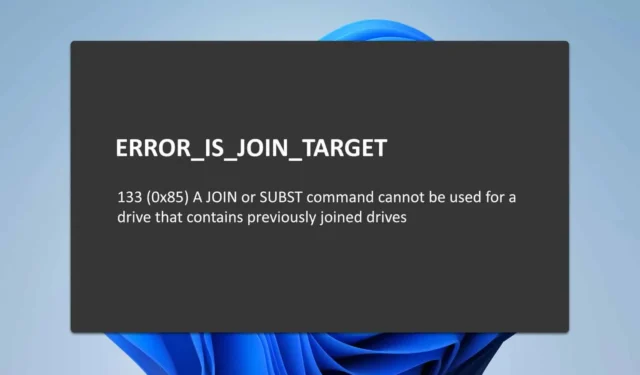Fixing Join Target 133 (0x85) Error: A Comprehensive Guide

The error labeled ERROR_IS_JOIN_TARGET is accompanied by code 133 (0x85), indicating that a JOIN or SUBST command cannot be executed on a drive that is already part of previously joined drives. This issue is primarily encountered by developers and seldom impacts average users.
If you do happen to run into this error, you can resolve it by following the steps outlined in this guide.
How can I resolve ERROR_IS_JOIN_TARGET?
Review the logs
- Begin by examining your logs.
- Identify any errors that may have disrupted the Taraserver.

- Your goal is to locate the precise Windows error and rectify it.
This problem specifically affects users of NetBackup 7.6 and TARA 15.110. If this error appears, it leads to the termination of the Taraserver. Notably, if your backups are successfully running throughout the week but fail on weekends due to this error, it suggests that the Tara software is not at fault.
ERROR_IS_JOIN_TARGET is generally an ambiguous and infrequent error that doesn’t typically hinder regular users; however, it may surface for developers or system administrators.
In such cases, your best course of action is to scrutinize the logs to identify which Windows error initiated the issue with Taraserver and take steps to resolve that underlying problem.
We have discussed similar errors previously, with our latest focus being on ERROR_JOIN_TO_SUBST.
We have also documented issues like ERROR_CALL_NOT_IMPLEMENTED and ERROR_NEGATIVE_SEEK in our earlier articles, so feel free to look them up for further assistance.


Leave a Reply